The Critical Role of Education in Family Caregiving
Family caregivers provide essential, often complex, care to millions of individuals with chronic health conditions, disabilities, or age-related needs. Despite their vital role, many caregivers feel unprepared due to limited formal training and resources. Educating and training family caregivers enhances their skills, confidence, and emotional resilience, directly improving care recipient outcomes and caregiver well-being. This article explores state and federal policies, available resources, training strategies, and emerging research that support and empower family caregivers through education and training programs.
State and Federal Policies Supporting Family Caregiver Education and Training
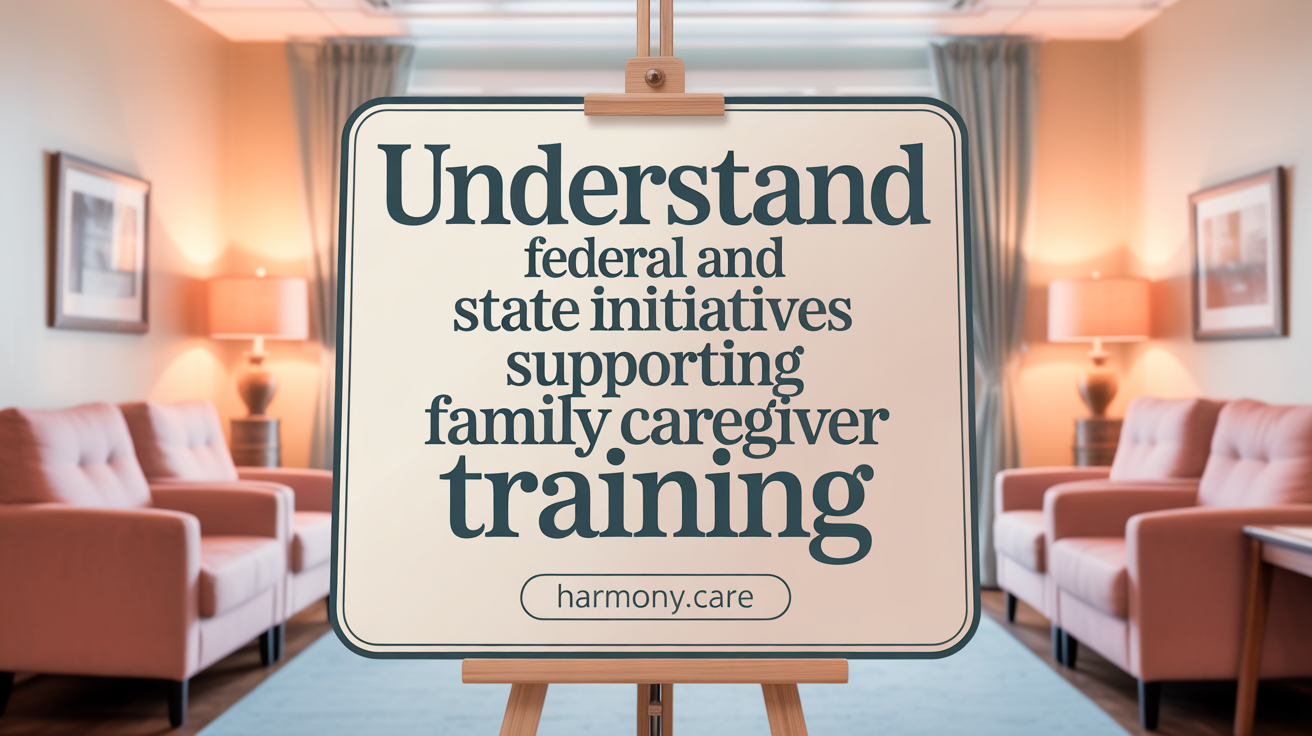
What are the benefits, eligibility criteria, and application processes for family caregiver training programs?
Family caregiver training programs are vital resources that aim to enhance the skills, confidence, and well-being of those caring for loved ones with chronic illnesses, disabilities, or age-related needs. These programs, offered by organizations such as the VA, the Family Caregiver Alliance, and others, provide structured education on managing medical tasks, understanding disease progression, and navigating healthcare systems.
Eligibility for these programs varies depending on the provider. For example, VA caregiver programs typically require the veteran to have a disability rating of 70% or higher, be enrolled in VA healthcare, and have a qualifying relationship with the caregiver, such as a spouse, child, or other family member. Both the veteran and the caregiver usually apply together.
Application methods are accessible and flexible, often including online forms, mail, or in-person visits to VA medical centers. Once an application is submitted, a caregiver support team reviews the case to determine eligibility and guides applicants through the next steps.
Benefits from participating in these programs are extensive and include mental health counseling, legal and financial guidance, travel support, temporary respite care, and sometimes stipends for primary caregivers. These services are designed to reduce caregiver stress, improve the safety and quality of care, and enable caregivers to assist their loved ones more effectively.
Beyond federal programs, many states and local agencies offer additional support such as paid caregiving roles, in-home assistance, and training opportunities tailored to regional needs. Application procedures for these services often depend on local policies but generally require assessment or screening to establish eligibility.
Overall, caregiver education initiatives through Medicaid waivers, NFCSP, VA programs, and community resources play an essential role in supporting the unpaid workforce that significantly contributes to healthcare and aging in place.
| Program | Main Services | Eligibility Criteria | Application Process |
|---|---|---|---|
| VA Caregiver Program | Education, training, counseling, stipends | Veteran with 70%+ disability, VA enrollment | Online, mail, in-person |
| NFCSP | Information, counseling, training, respite | Unpaid caregivers of adults 60+ | Assessment, often via local agencies |
| State-specific programs | Variable, including paid roles and in-home care | Varies regionally | Regional assessment |
This broad spectrum of policies and programs intentionally broadens the support network for family caregivers, emphasizing education, skill-building, and emotional support to sustain their vital roles.
Comprehensive Educational Resources and Practical Training for Family Caregivers
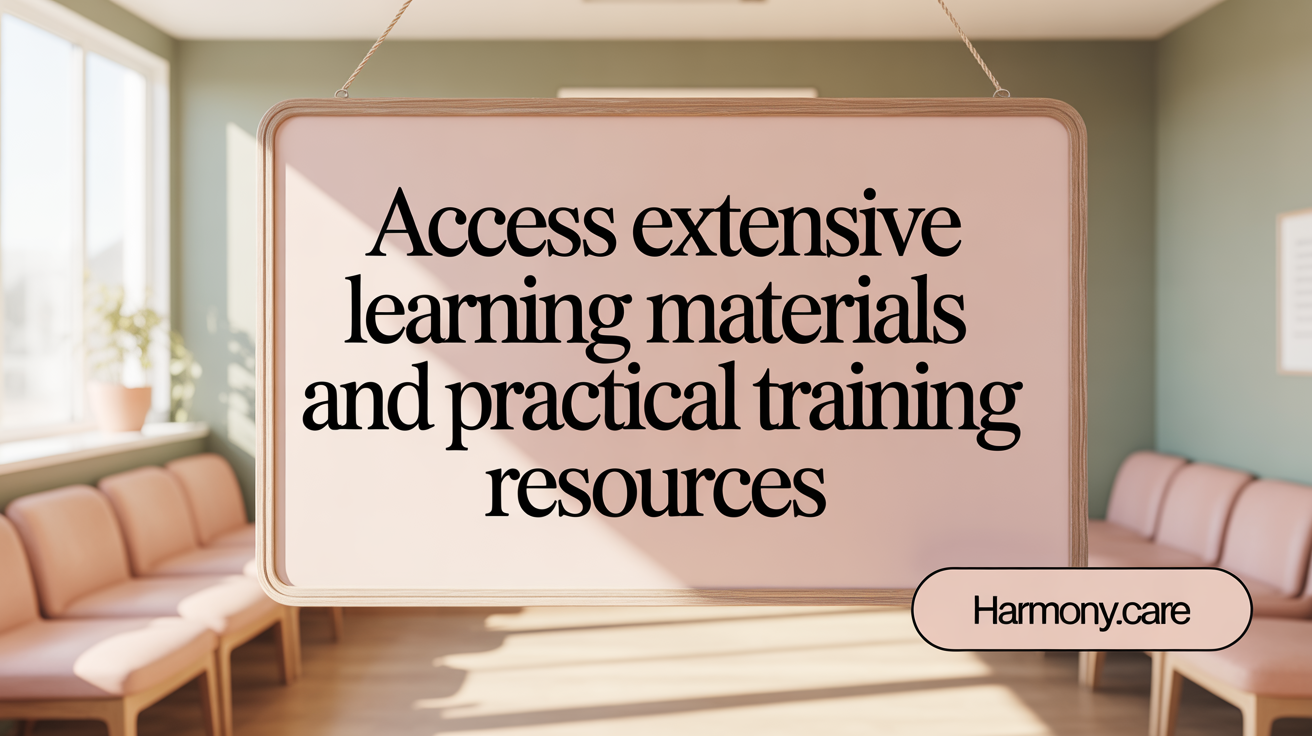 Many organizations and programs provide valuable educational resources, tools, and materials to support family caregivers in their vital roles. Reputable sources like the Family Caregiver Alliance, Caregiver Action Network, and the Saint Louis University Gateway Geriatric Education Center offer an array of options.
Many organizations and programs provide valuable educational resources, tools, and materials to support family caregivers in their vital roles. Reputable sources like the Family Caregiver Alliance, Caregiver Action Network, and the Saint Louis University Gateway Geriatric Education Center offer an array of options.
Online platforms such as CareLearn Washington and the Family Caregiver Toolbox deliver accessible training modules, videos, and handbooks. These resources cover essential topics including medication management, behavioral strategies, and emergency preparedness. For instance, CareLearn Washington provides free, self-paced courses on dementia care, safe lifting, and disease-specific caregiving, helping caregivers develop confidence and competence.
Educational materials also include comprehensive videos and manuals tailored to managing complex conditions like Alzheimer’s disease and other dementias. These resources often feature step-by-step guides on wound care, incontinence management, and mobility assistance. Support organizations frequently supplement training with support groups, webinars, and newsletters that share practical tips and latest research findings.
Specialized resources target dementia caregivers, emphasizing early education on behavioral and psychological symptoms of dementia (BPSD). Virtual training programs such as STAR-VTF have been developed in response to caregiver demand for flexible, timely support. Caregivers value these programs for their convenience, especially when offered early in the disease progression, and prefer bite-sized review modules for better integration into their busy lives.
Additionally, many programs provide free or low-cost publications, infographics, and evidence-based information to enhance caregiver knowledge. These educational tools, combined with coaching and peer support groups, contribute to reducing caregiver stress, improving caregiving skills, and ultimately supporting better patient outcomes.
Effective Strategies and Best Practices in Educating and Training Family Caregivers
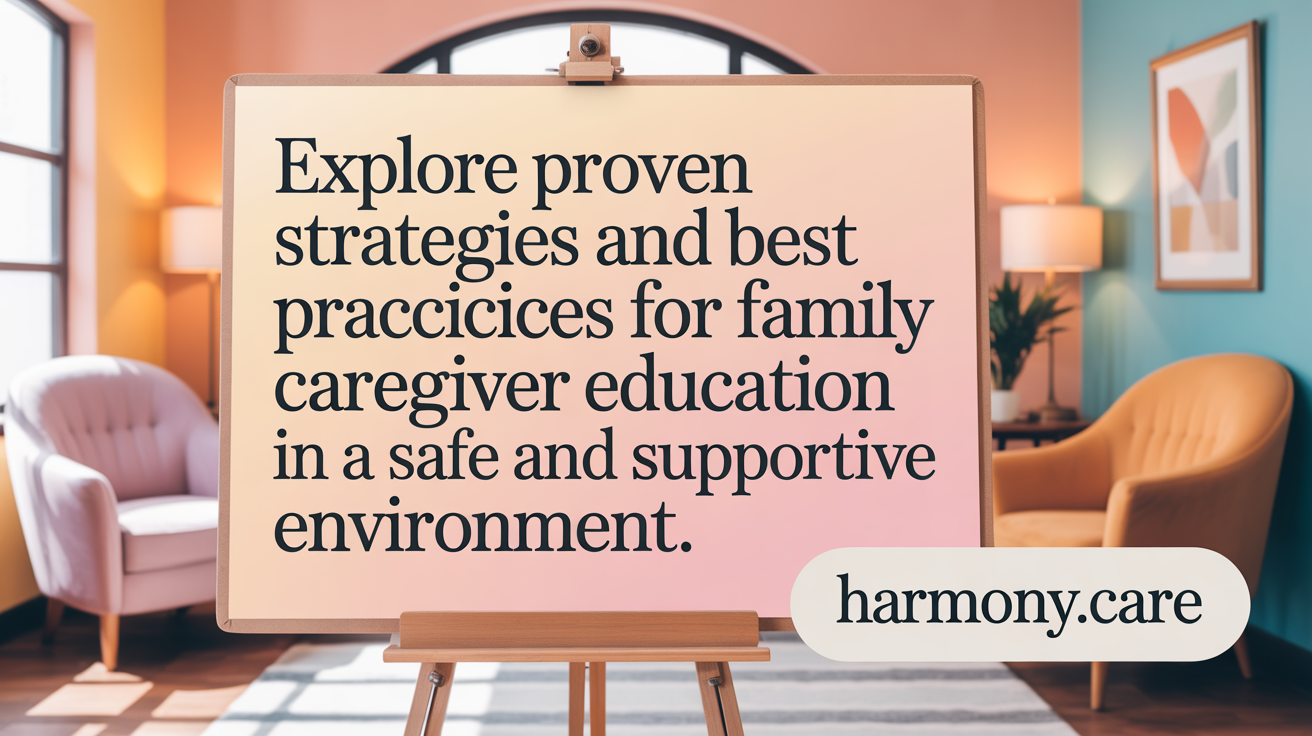
What strategies and best practices are effective for educating and training family caregivers?
Providing family caregivers with access to evidence-based online tools and video tutorials is a proven approach. Reputable organizations such as the Alzheimer's Association and AARP offer resources that cover managing medications, behavioral issues, and specific conditions. These resources give caregivers the flexibility to learn at their own pace, which is essential given their busy schedules.
Tailored assessments and ongoing training are crucial to meet individual caregiver needs. By evaluating caregiver skills and stress levels, programs can customize education plans that improve safety, confidence, and competence. For instance, caregiver-focused programs include problem-solving and psycho-educational modules that reduce depression and build confidence.
Community-based and flexible program delivery methods enhance accessibility. Virtual classes, workshops, and self-paced courses—like CareLearn Washington or the STAR-VTF program for dementia—allow caregivers to participate from home, often with no cost. These programs also partner with local organizations to reach underserved populations.
Techniques aimed at improving communication, problem-solving, and stress management have shown positive outcomes. These include teaching effective dialogue strategies, offering support groups, and training for managing complex medical tasks safely. Interventions based on models like the Progressively Lowered Stress Threshold have demonstrated reductions in behavioral problems for care recipients and increased caregiver preparedness.
Integration of caregiver education with healthcare provider support is vital. Hospitals and clinics are increasingly documenting caregiver involvement and providing discharge education using teach-back methods, ensuring caregivers understand and feel confident in their roles. Follow-up through electronic health records and ongoing communication sustains support, reduces caregiver stress, and delays institutionalization.
Overall, deploying a combination of accessible online resources, tailored training, community outreach, and healthcare partnership forms an effective framework. These practices empower caregivers with knowledge and skills, ultimately enhancing the quality of care and caregiver well-being.
Training and Education Programs for Healthcare Professionals to Support Family Caregivers
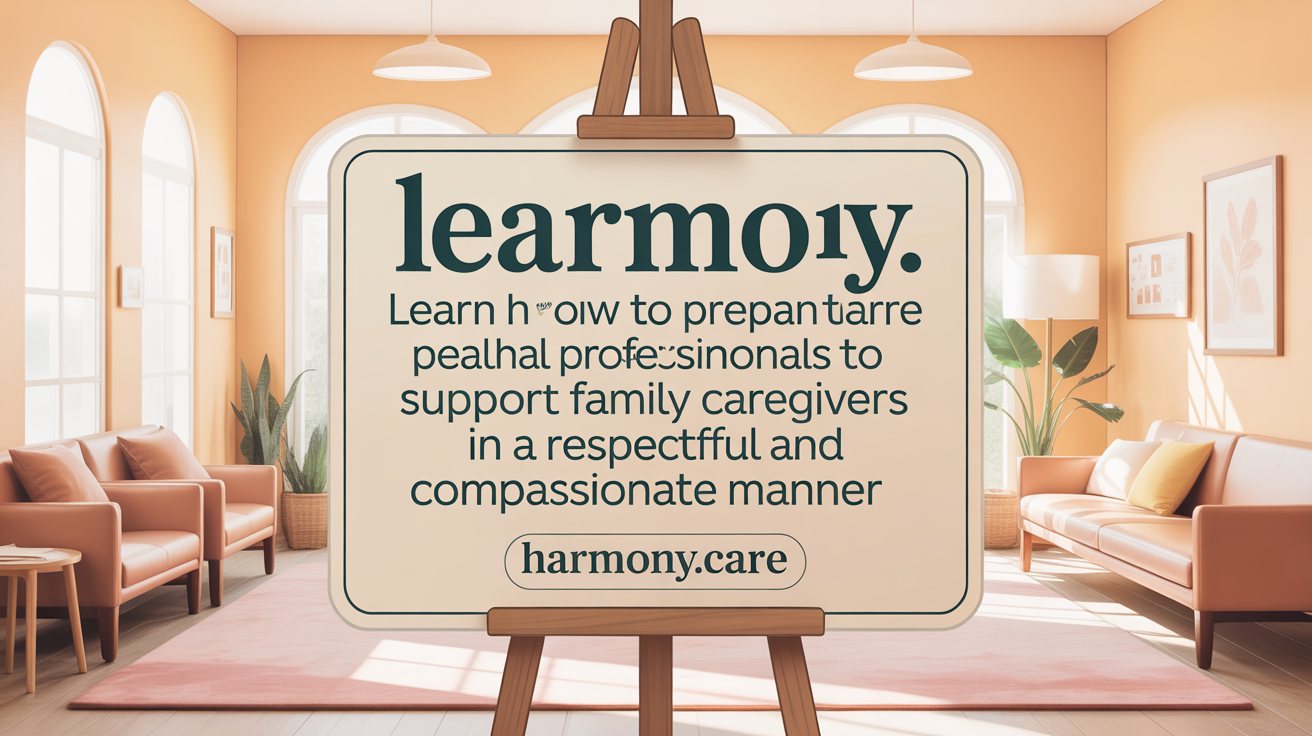
How can health professionals be educated and trained to better support family caregivers?
Ensuring healthcare providers are well-prepared to assist family caregivers is crucial for improving patient outcomes and reducing caregiver stress. Initiatives like the Family Caregiving Certificate Program serve as foundational models, offering specialized training on family-centered communication, healthcare policies, and clinical practices tailored to caregiver needs.
One effective approach involves integrating caregiver support education into nursing and medical curricula. This inclusion allows future healthcare professionals to learn about providing emotional support, system navigation, and caregiving planning as part of their standard training.
Flexible online courses and modular training programs play a significant role in broadening access. These courses, often developed and led by academic institutions and caregiving experts, cover topics such as effective communication with caregivers, managing medication and daily activities, and navigating healthcare services.
Collaboration among various stakeholders, including hospitals, community organizations, educators, and policymakers, enhances program design and implementation. Their combined efforts ensure training content remains relevant, culturally sensitive, and adaptable across different healthcare settings.
Furthermore, policy reforms and reimbursement incentives are essential to encourage healthcare providers to prioritize caregiver education. Programs like Medicare caregiver training initiatives enable providers to bill for training services, making caregiver support a sustainable part of healthcare delivery.
In summary, combining structured educational programs, online learning modules, interdisciplinary collaboration, and supportive reimbursement policies can significantly improve training for health professionals. Such comprehensive efforts are vital in equipping healthcare workers to support family caregivers effectively, ultimately benefiting patients and their families.
Integration of Caregiver Education into Healthcare Delivery and Hospital Policies
How is caregiver education integrated into healthcare delivery and hospital policies?
Caregiver education has become an essential component of healthcare services and hospital practices. Many hospitals now incorporate formal training programs for caregivers designed to improve their confidence and competence in managing complex medical tasks, such as medication administration and wound care. These initiatives often involve using teach-back techniques, simulation training, and providing educational materials upon discharge.
Legislation like the CARE Act mandates hospitals to identify, notify, and train family caregivers, emphasizing the importance of involving caregivers early in the care process. Additionally, the RAISE Family Caregivers Act promotes nationwide efforts to develop standardized caregiver support policies, encouraging healthcare organizations to embed caregiver assessments and education into care planning.
Hospitals are also adopting innovative approaches, such as digital education platforms and integrating caregiver support activities into electronic health records. Documenting caregiver education and support efforts ensures continuity of care and helps providers tailor their interventions.
Furthermore, specialized training programs for nursing staff—focused on caregiver communication, assessment, and support—are becoming more common. These programs aim to foster better partnerships with caregivers, ensuring they receive the necessary information and guidance to assist in ongoing patient care.
Despite these advances, challenges persist, including inconsistent assessment tools and limited resources. To address this, healthcare systems are working toward standardized protocols and policy updates that embed caregiver education as a routine part of hospital and outpatient care, ultimately fostering a culture that values and supports family caregivers in their vital roles.
Outcomes, Research, and Practical Guidance Enhancing Family Caregiver Education
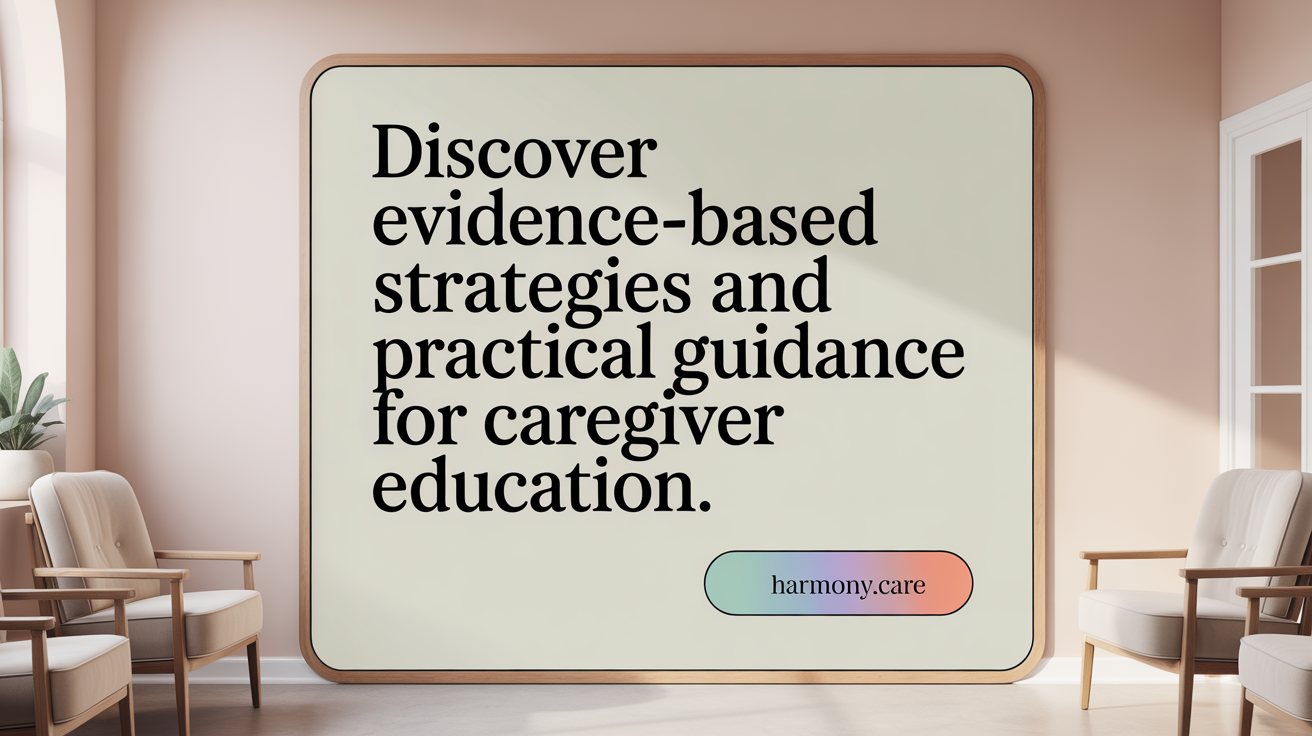
Why is it important to educate caregivers?
Educating family caregivers is crucial because it directly improves their confidence and ability to provide high-quality, person-centered care. Well-trained caregivers help ensure better health outcomes for their loved ones, including improvements in cognitive function, mobility, and overall quality of life. Formal training programs, such as those on medication management or behavioral strategies, can significantly reduce caregiver stress, burnout, and feelings of being overwhelmed.
Moreover, education enhances communication and safety, allowing caregivers to respond more effectively to emergencies or complex medical tasks. Continuous learning and support foster emotional resilience and satisfaction, which are vital for sustaining long-term caregiving roles. Including caregivers early in treatment plans and preventive strategies—especially before the onset of conditions like dementia—can delay institutionalization and reduce healthcare costs. As trusted partners, well-informed caregivers contribute meaningfully to the care team, ensuring a safer and more supportive environment for the care recipient.
Research indicates that when caregivers feel prepared and supported, there are measurable improvements in caregiving outcomes. These include increased self-efficacy, reduced psychological burden, and a greater capacity to manage behavioral symptoms of illnesses like dementia.
What practical advice can enhance caregiving skills and knowledge for family caregivers?
Caregivers can boost their skills by developing effective communication strategies such as active listening, which helps build trust and ensures needs are understood. Cultivating patience and empathy allows caregivers to better meet emotional and physical needs while fostering a compassionate care environment.
Gaining practical skills like problem-solving, time management, and organization can enhance care safety and efficiency. Engaging in ongoing education—via workshops, online courses, or community programs—provides evidence-based strategies for managing daily care tasks and health promotion.
Prioritizing self-care is essential; recognizing signs of stress and fatigue helps prevent burnout. Building a robust support network with family, friends, and community resources provides emotional and practical assistance. Setting boundaries and seeking respite when needed are key to maintaining caregiver well-being.
By continuously developing knowledge and skills in these areas, family caregivers can provide safer, more effective, and compassionate care, ultimately benefiting both themselves and those they serve.
This ongoing education fosters resilience and improves the caregiving experience, leading to better management of complex health conditions and enhanced quality of life for all involved.
Building a Future of Empowered Family Caregivers
Supporting family caregivers through targeted education and comprehensive training is indispensable to the health and well-being of millions who rely on unpaid care. State and federal policies, combined with innovative programs and resources, offer a robust foundation for caregiver empowerment. Integrating caregiver education into healthcare delivery, enhancing professional training, and utilizing technology expand access and effectiveness. Ongoing research highlights the tangible benefits of these initiatives for both caregivers and care recipients. By adopting best practices and continuing to invest in caregiver support, policymakers, healthcare systems, and communities can ensure that family caregivers are equipped, confident, and resilient — ultimately fostering healthier individuals and stronger families.
References
- State Approaches to Family Caregiver Education, Training, and ...
- National Family Caregiver Support Program
- Supporting Family Caregivers in Providing Care - NCBI
- State Approaches to Family Caregiver Education, Training, and ...
- Caregiver Resources - DSHS
- VA Family Caregiver Assistance Program | Veterans Affairs
- Family Caregiver Alliance
- Caregiving educational programs - UC Davis Health
- Caregiver Education
- Enabling Community Participation Through Workforce Training ...
